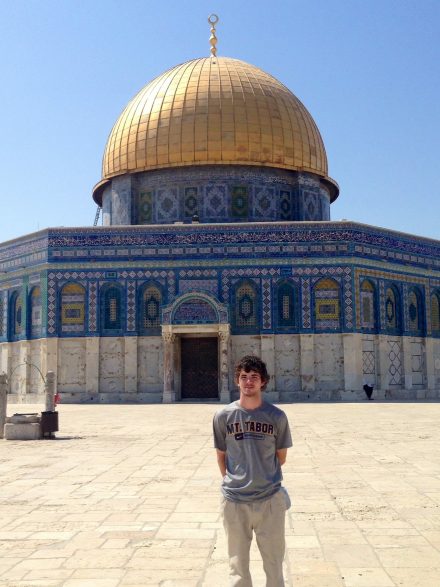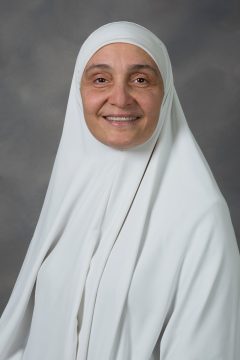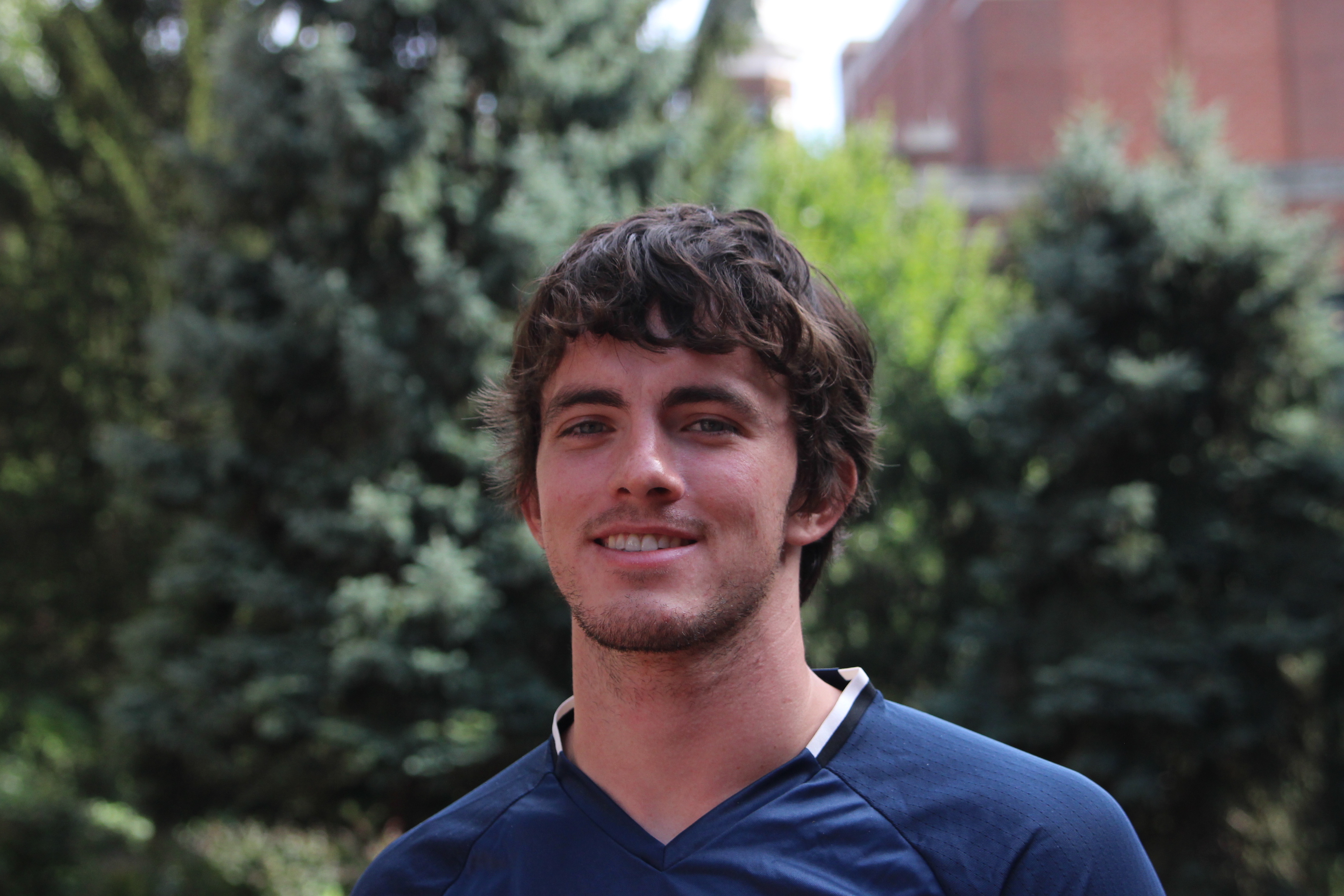Berlin is completing his doctoral thesis in political science at George Washington University using Arabic language skills begun at Elon to interpret primary source documents by violent extremist groups and affiliates.
How do terrorist organizations communicate with each other, why do they collaborate and what factors cause outside groups to affiliate with groups like al-Qaida or the Islamic State?
These are some of the big questions Mark Berlin ’13 is researching in his thesis for his Doctorate in Political Science at George Washington University. He hopes the work will influence better international policy-making. Berlin saw a gap in the way experts were studying jihadist and militant groups, namely using English sources without relying on original Arabic materials.
Sure enough, examining primary sources and statements by those groups and affiliates led to new understanding of their behavior and motivations that aren’t necessarily about ideology.

“These are clandestine groups that value secrecy. We can’t know everything, but to look at attack data without also examining organizational documents and discussions misses a ton of information,” Berlin said. “Groups aren’t just using suicide bombings and not discussing that. (In one) there were 15 to 20 pages of discussions about why they began to use suicide bombings. That sheds critical light on understanding organizational behavior.”
His journey to these insights began — almost as a fluke — during his last semesters at Elon.
Berlin graduated with a degree in political science and was a standout soccer player for the Phoenix, helping the men’s team reach three straight NCAA tournaments. In his junior year, a close friend who had completed several semesters of Arabic encouraged him to enroll in Lecturer Shereen Elgamal’s Elementary Arabic I course.
He was surprised how much he enjoyed it. With Elgamal’s encouragement, he completed a second semester and a six-week study abroad program in Oman the summer of 2013. He took a third Arabic course his final semester and moved to Morocco after graduation. Soon after, he moved to Israel and realized he wanted to put his political science degree and Arabic skills to permanent use.
“Arabic is such a beautiful language,” he said. “It’s also very challenging. You have to put your mind to it, and I love that. There are so many synonyms, and then there are dialects and different conjugations. Until I die, I will be a student of Arabic. I will never feel like I’ve mastered it. There’s always something new to learn.”
He earned his Master in Arab Studies and in Islamic and Middle Eastern Studies from Georgetown University and the Hebrew University of Jerusalem, studying also in Jordan and Lebanon.

Through it all, Elgamal has been a constant source of support.
“She is unbelievably invested in her students,” Berlin said. “She’s written a letter of recommendation for every program I’ve been accepted to. Four years after I graduated, when I was preparing for the Arabic proficiency exam at Georgetown, Shereen spent hours on the phone with me every night practicing my Arabic. She’s someone I can talk to, someone I can bounce ideas off of, and she has supported me the whole way.”
Elgamal is still inspired by Berlin’s ambition.
“I will always remember the serious commitment that he consistently demonstrated in my classes even as he struggled with new concepts, challenging letter sounds and unfamiliar grammatical structures,” she said. “Mark made the decision to gain proficiency in Arabic and put his mind to it by traveling, volunteering and persisting in academic pursuits. The most inspiring thing is his positive energy and the smile that always appeared on his face as he worked through it all.”
Berlin hopes the information uncovered in his research will assist in countering militant organizations and understanding why groups behave in certain ways. Over the last several decades, armed groups across different global regions have pledged allegiance to al-Qaida and ISIS. The pledges are often followed by acts of violence that mirror tactics used by those organizations, such as suicide bombings or beheadings.
“Doing that means they lose local support and puts them on the international terrorism radar, so why are they doing it? What I’ve found is that recently appointed leaders are the ones doing the pledging,” Berlin said. “Any new leader of an organization comes in amid uncertainty. They often want to make a statement to establish their leadership capabilities” and gain clout and influence.
“These groups continue to operate in civil conflicts in different regions throughout the world,” Berlin added. “Hopefully, a lot of these kinds of insights will help us understand their alliances. If it’s a longstanding group, it makes it less likely they will pledge, but if their leader is replaced, they might end up pledging. There’s nuance that needs to go into decisions about how to deal with these situations.”



